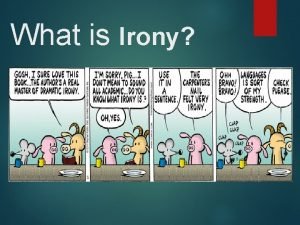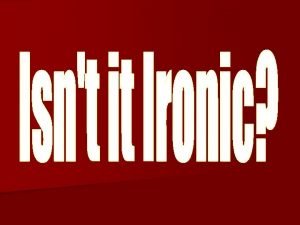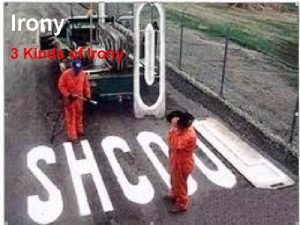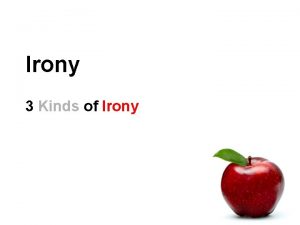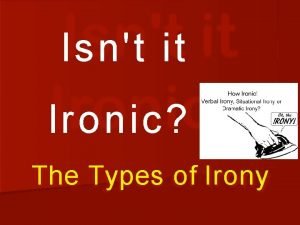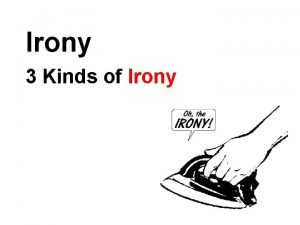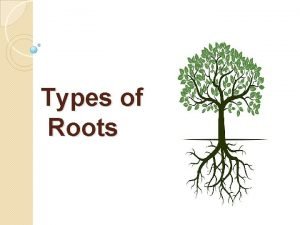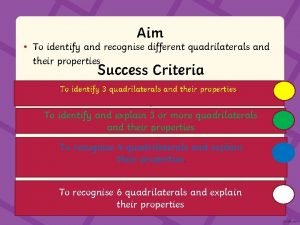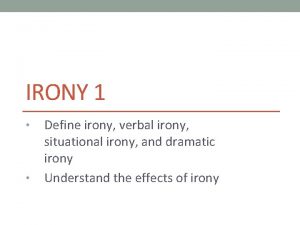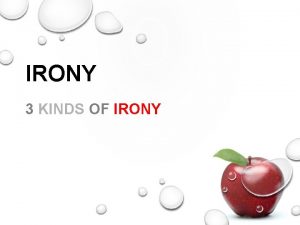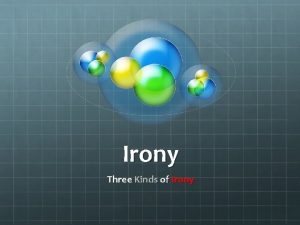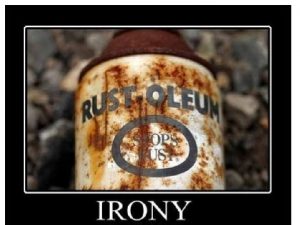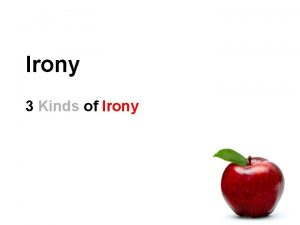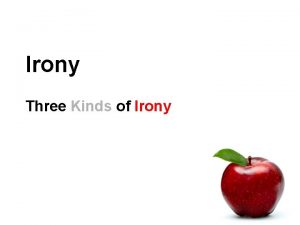Irony 3 Kinds of Irony What is Irony










- Slides: 10

Irony 3 Kinds of Irony

What is Irony? Irony is about expectations. Irony: the opposite of what is expected. 3 kinds of irony • Verbal • Dramatic • Situational

Verbal Irony A character says one thing but means the opposite Also called sarcasm or being sarcastic. Examples The locker room smells really good. Awesome! Another homework packet!

Verbal Irony examples The Most Dangerous Game • “We try to be civilized here…, ” said Gen. Zaroff. “I treat these visitors with every consideration. ”

Dramatic Irony When the reader understands more about the events of a story than a character. ie: You know something that a character doesn’t. Example In “The Gift of the Magi, ” Della sells her beautiful hair to buy her husband a chain for his gold pocketwatch as a Christmas gift; unknowingly, he sells his watch to buy her a comb for her hair.


Situational Irony When what actually happens is the opposite of what is expected. Something about the situation is completely unexpected. Example Bill Gates uses an Apple computer.

Situational Irony Examples • In MDG, Rainsford… – IS the Most Dangerous Game; – jumps off the cliff and becomes the hunter by killing Gen. Zaroff

Review Something that is ironic is unexpected. If unexpected by a character, it’s dramatic. If unexpected by everyone, it’s situational. If it’s sarcasm, it’s verbal.

Application Work with a partner to: • Identify the type of irony in each reading passage: verbal, dramatic, or situational. • Explain how you know the writer is using that type of irony.
